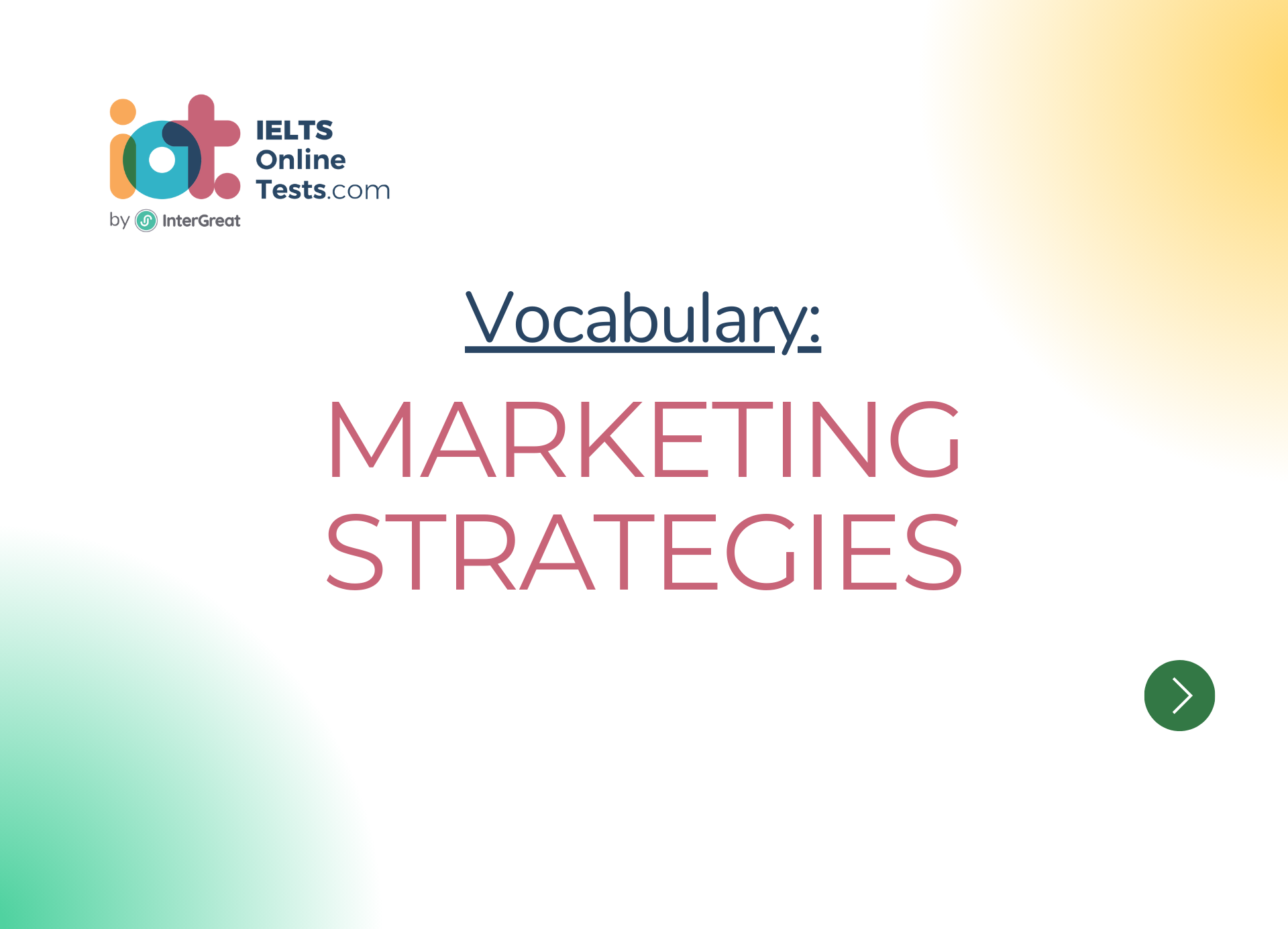
Marketing strategies
Here are some vocabulary words related to marketing strategies for IELTS band scores 4.5-6.0:
Marketing Strategy:
A plan or approach designed to promote a product or service and achieve specific business goals.
Target Audience:
The specific group of consumers that a marketing campaign is intended to reach.
Market Segmentation:
Dividing the target market into distinct groups based on shared characteristics or preferences.
Product Positioning:
Creating a unique image and identity for a product in the minds of consumers.
Brand Awareness:
The level of familiarity and recognition of a brand among the target audience.
Brand Loyalty:
The degree of customer commitment and attachment to a particular brand.
Market Research:
The process of gathering and analyzing information about a market, including consumer needs and preferences.
Competitive Analysis:
Evaluating the strengths and weaknesses of competitors to identify opportunities and threats.
Unique Selling Proposition (USP):
The distinctive feature or benefit of a product that sets it apart from competitors.
Marketing Mix:
The combination of product, price, place, and promotion strategies used to reach the target market.
Advertising:
Paid promotion of products or services through various media channels.
Public Relations (PR):
Building and maintaining a positive image and relationship with the public and media.
Social Media Marketing:
Using social media platforms to promote products and engage with customers.
Content Marketing:
Creating and distributing valuable content to attract and retain a target audience.
Email Marketing:
Sending commercial messages to a group of people via email to promote products or services.
Influencer Marketing:
Collaborating with influential individuals or celebrities to promote a brand or product.
Digital Marketing:
Marketing efforts that use digital channels such as websites, search engines, and social media.
Guerrilla Marketing:
Unconventional and low-cost marketing tactics that create a buzz and draw attention.
Viral Marketing:
Creating content that spreads rapidly and widely through social sharing.
Word-of-Mouth Marketing:
Marketing that relies on customers' recommendations and referrals.
Call-to-Action (CTA):
A prompt that encourages the audience to take a specific action, such as making a purchase.
Conversion Rate:
The percentage of website visitors or recipients of marketing messages who take the desired action.
Customer Retention:
Efforts to keep existing customers and encourage repeat purchases.
Upselling:
Persuading a customer to buy a more expensive or upgraded version of a product.
Cross-selling:
Offering complementary products or services to customers based on their previous purchases.
Market Penetration:
Introducing a product into an existing market to gain a larger share of customers.
Market Development:
Expanding into new markets to reach untapped customer segments.
Product Development:
Creating new products or modifying existing ones to meet customer needs.
Diversification:
Entering new markets with new products or businesses to reduce reliance on existing markets.
Product Lifecycle:
The stages of a product's existence, including introduction, growth, maturity, and decline.
Price Skimming:
Setting a high initial price for a new product and gradually lowering it over time.
Price Penetration:
Setting a low initial price to gain a large market share quickly.
Promotional Campaign:
A coordinated series of marketing activities to achieve specific objectives.
Marketing Budget:
The allocated funds for marketing activities and campaigns.
Return on Investment (ROI):
The measure of the profitability of a marketing campaign relative to its cost.
Customer Segmentation:
Dividing customers into groups based on similar characteristics or behaviors.
Market Share:
The portion of a market controlled by a specific company or product.
Product Differentiation:
Making a product unique to distinguish it from competitors.
Market Demand:
The total quantity of a product or service that customers are willing to buy at a given price.
Customer Satisfaction:
The extent to which customers are happy with a product or service.
Remember to practice using these words in various contexts to reinforce your understanding and improve your English skills. Good luck with your IELTS preparation!




